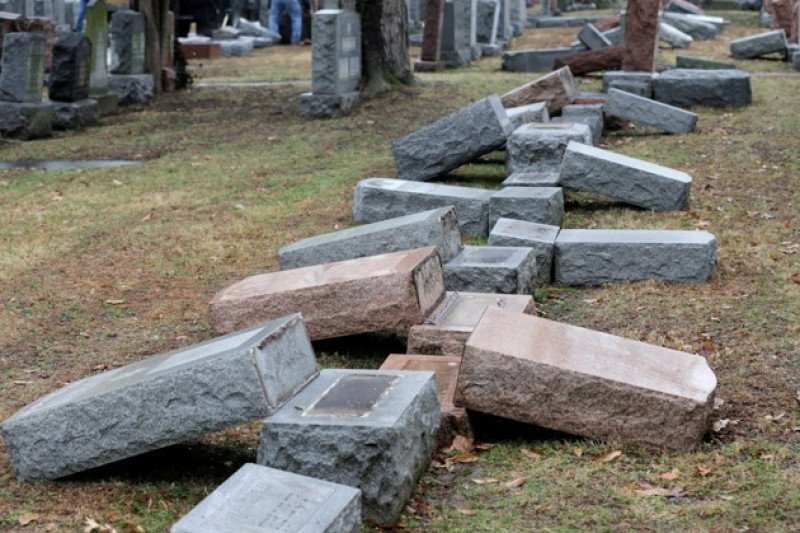Twenty-one-year-old Khaled Khatib is a cinematographer and press officer for the Syrian White Helmets.
The group, also known as the Syrian Civil Defense, works tirelessly to rescue civilians affected by the country’s devastating civil war.
In 2015, Khatib met British director Orlando von Einsiedel and was recruited to document the group’s rescue missions for the upcoming film “The White Helmets.”
The 40-minute Netflix documentary, which has been nominated for an Oscar in the best documentary short subject category, follows three rescue workers from their training in Turkey to when they put their lives on the line to save civilians.
Khatib was responsible for much of the footage, capturing some of the most defining moments of the civil war: from men scouring rubble for life to the faint cries of newborn babies to the constant fear of when the next barrel bomb might be.
After a dramatic couple of weeks, Khatib received a visa to travel to the United States for Sunday’s Oscar ceremony.
However, a day before the event he announced on Twitter he would not be attending, citing the “intensity of work” and saying “our priority is helping our people.”
The White Helmets later tweeted that his passport had been “cancelled by the Syrian regime, despite having been issued a US visa specifically to attend the awards ceremony.”
When asked about Khatib’s situation, DHS Spokesperson Gillian Christensen told CNN: “A valid travel document is required for travel to the United States.”
Still, Khatib is hopeful for a victory.
“If we win this award, it will show people across Syria that people around the world support them. It will give courage to every volunteer who wakes up every morning to run towards bombs.”
CNN had earlier caught up with Khatib:
How did you feel when you found out ‘The White Helmets’ was nominated for an Oscar?
I felt very happy, I’m very proud because it’s the first big film in the country that was made about the Syrian Civil Defense. It’s a big success for us because we (were able to) let a lot of people around the world know who the volunteers of the Syrian Civil Defense (the White Helmets) are.
It (has) allowed people to know that there are people and volunteers who are working and fighting for peace, not for the war — that there are people who are saving lives. It’s a big message and we need all the people around the world to know this — the Syria Civil Defense (is) working for peace. They only save lives.
Why did you join the Syrian Civil Defense?
I saw a lot of journalists in Syria in 2013, and I really liked them. So I took a camera and started volunteering for the White Helmets because I wanted the people around the world to know what the White Helmets are doing and what is happening in Syria.
After two weeks of working, there were bombings, and we responded to a rescue operation. We saved a child from under the rubble, and I recorded this moment. It got a lot of YouTube views, and I took the decision to continue my work.
It’s easy for anyone to kill someone, but it’s very hard and very difficult to save lives.
What was your first mission?
It was very, very hard for me. There was a big massacre and more than 100 people were killed. That was the worst day for me, because I saw the causalities and the bodies of the victims and when I came back to my home I also saw them in my dreams — I saw them when I was awake, and I saw them when I slept.
How does your family feel about your job?
At first I didn’t tell my parents that I was with the Syrian Defense Force, but after some time they found out. They asked me why I was going to the dangerous areas. (They said) “everyone usually leaves when there’s bombings, but you are going there — it’s crazy!” But I told them I had to do my best and film the people and show what was going on in our city.
I don’t tell them (about the) victims’ bodies and causalities; I only tell them about our successes — so now they support me to complete my work.
How can people around the world help Syrians?
We want people to support the Syrian people by (creating) awareness with their government and to let them (use) their power to stop this war.
I wish this war would stop tomorrow.
We want to rebuild Syria, rebuild the stores, hospitals, the markets and the universities. We want to liberate Syria and let the refugees return to the country.
What do you hope to do in the future?
I hope to complete my education and study journalism because my education stopped because of this war, and there are a lot of Syrians like me. So one day I hope to finish my education and go to university in the US or the UK.
The above interview has been edited for brevity.



